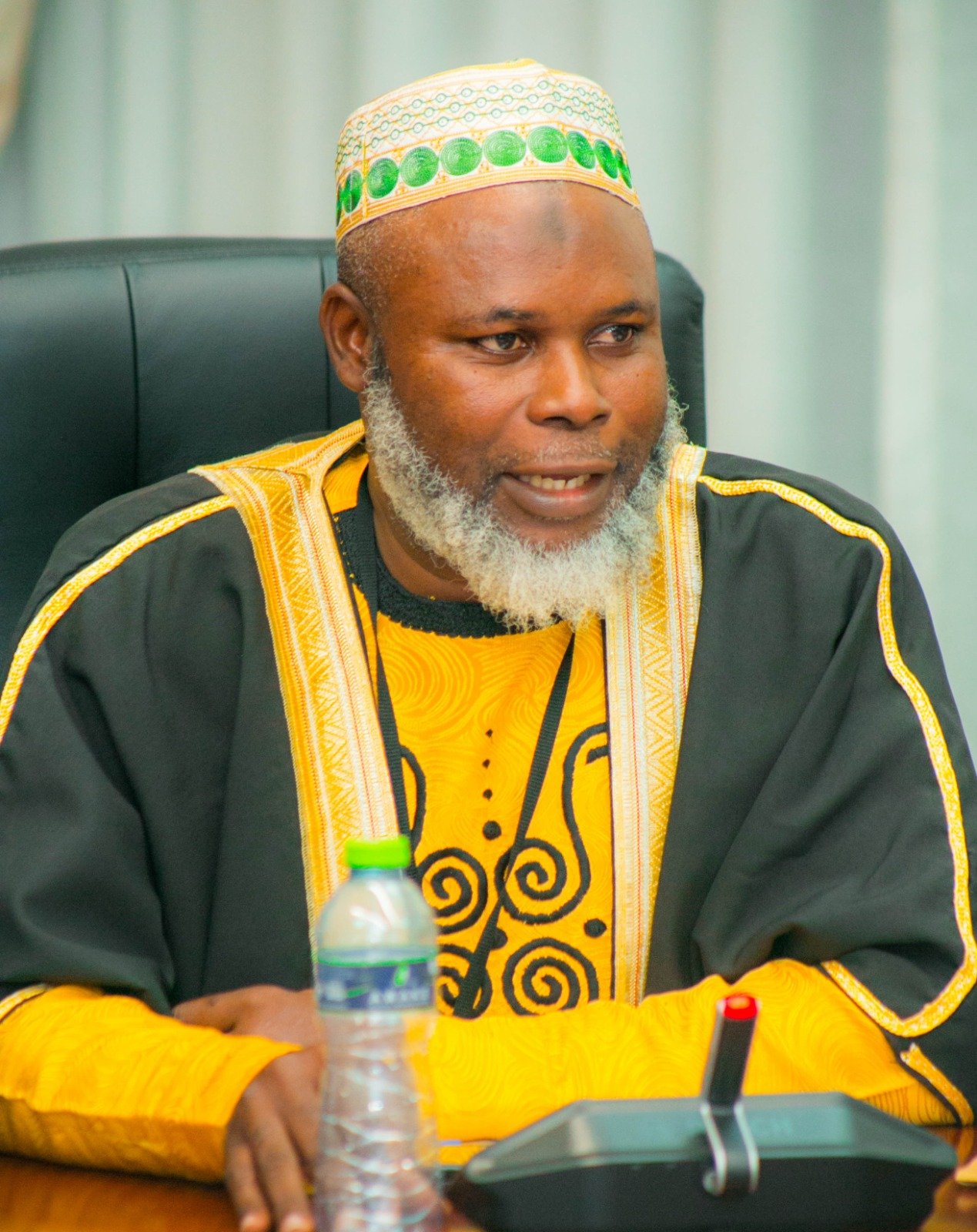Fruitful Living
10 things you should know about Christmas
“For God so loved the world that he gave his one and only Son, that whoever believes in Him shall not perish but have eternal life. For God did not send His Son into the world to condemn the world, but to save the world through Him.” – John 3:16-17
The true meaning of Christmas is love as we read in John 3:16-17 quoted above. The celebration of this incredible act of love, demonstrated by God through the coming of the Lord Jesus Christ into our world is what Christmas is all about.
The real Christmas story is the story of God becoming a human in the Person of Jesus Christ. Why did God do such a thing? Because He loves us! Why was Christmas necessary? Because we needed a Saviour! Why does God love us so much? Because He is love itself 1 John 4:8. Why do we celebrate Christmas each year? We do it out of gratitude for what God did for us, we remember His birth by giving one another gifts, worshipping Him, and being especially conscious of the poor and less fortunate.
1. Jesus is the reason for the season.
The primary purpose for observing Christmas is remembering Jesus’ birth. At Christmas, we celebrate Jesus’ birthday, not the little drummer boy or Santa Claus!
2. Jesus preexisted with God in the beginning before the world began.
Jesus’ birth as a baby in a Bethlehem manger doesn’t mark the beginning of His existence. Rather, as John’s Gospel teaches explicitly – John 1:1, 14 and the other Gospels imply, Jesus took on human flesh in addition to existing eternally as part of the Godhead.
3. Jesus’ birth was the culmination of centuries of messianic expectations.
Jesus’ coming occurred in fulfillment of messianic expectations including His birthplace, virgin birth, and other details surrounding His advent. Later, during His earthly ministry and particularly in His death on the cross, Jesus fulfilled many more messianic patterns and predictions.
4. We should distinguish between cultural and biblical Christmas.
We must separate fact from fiction, and historic, biblical truths from mere Christmas traditions. This includes Santa Claus, presents, reindeer, Christmas trees, and other paraphernalia. Not that these customs are necessarily harmful or unhelpful but they are unhistorical. Jesus’ birth, however, is not a legend; it is historical fact.
5. Jesus’ birth is part of a larger cluster of events that culminates in His death for our sins as God’s suffering servant.
Jesus was not only born as a baby, He grew up as a young man who knew the Scriptures. Then, when He was about 30 years old, He began His public ministry, teaching, healing many, exorcising demons, raising the dead, and commanding the forces of nature. In keeping with His own predictions, He died, was buried, and after three days rose from the dead. While at Christmas we celebrate Jesus’ birth, we should remember that it is part of a life unlike any other that brought us salvation and forgiveness of sins.
6. Jesus, the Son of God, was conceived by the Holy Spirit in His mother Mary’s womb.
At the heart of Christmas is a biological and theological miracle that requires supernatural faith. Skeptics scoff at the notion of God conceiving a child in a virgin’s womb, calling it a biological impossibility and dismissing it as mere legend. Believers will recognise that only a sinless human could save humans by dying for them, and that such a sinless human could only be conceived by God Himself.
7. There is no incarnation without the virgin birth.
Andrew Lincoln, in his book “Born of a Virgin?”, has argued that the virgin birth is unhistorical while asserting that the incarnation could still be true in a spiritual sense. This, however, is contrary to scriptural teaching, which keeps the virgin birth and the incarnation together as two sides of one and the same coin. Only a virgin birth allows Jesus to be the God-man who combines two natures—human and divine—into one person as the early church councils went on record as affirming the truth.
8. Jesus’ birth was accompanied by rejection.
Herod tried to kill Jesus– Matt. 2:16. There was no place for Jesus in the inn Luke 2:7. Even though the world was made through Jesus, the world did not recognise Him – John 1:11. Many did not welcome the birth of the Christ child. The reason for this was primarily that Jesus threatened people’s self-interest. Sinful people love sin more than God and refuse to come to the light lest their sin be exposed – John 3:19–21.
9. Jesus came to make a second, spiritual birth possible for those who believe in Him.
As Charles Wesley affirms in “Hark! The Herald Angels Sing,” Jesus was “born to raise the sons of earth, born to give them second birth.” John also writes, “But to all who did receive Him, who believed in His name, He gave the right to become children of God, who were born, not of blood nor of the will of the flesh nor of the will of man, but of God” – John 1:12–13. Later, he tells the story of Nicodemus, whom Jesus told that he must be born again – John 3:3, 5. Anyone can be born again spiritually by repenting of his sin and placing his trust in Jesus. Those who do not experience this second birth aren’t believers but Christians in name only -Rom. 8:9.
10. Jesus’ coming marks the ultimate sacrifice.
Jesus left the glories of heaven to enter the world—a dark place—naked, vulnerable, and defenCeless. He exposed Himself to the human condition and took on “the likeness of sinful flesh” – Rom. 8:3. He became weak, humbled Himself on a cross, and died for our sin Phil. 2:5–8. That—not gaudy commercialism—is what Christmas is all about.
This article was inspired by a devotional from Crossway.
MERRY CHRISTMAS AND A HAPPY FRUITFUL AND HOLY SPIRIT
FILLED YEAR 2022!!
Stay Blessed!
For further inquiries please contact us on Tel Nos. 0243588467 or 0268130615
Email: saltnlightministries@gmail.com
Website: saltandlightministriesgh.org
By Dr Joyce Aryee, the Author
Fruitful Living
Institution of Marriage in Islam (Pt.3)

Regarding sexual intimacy, it is also prohibited for a wife to demand money or gifts before allowing her husband to engage in sexual relations. Islam views this as a form of exploitation and sin. A marital relationship must be based on mutual love, respect, and affection rather than material gain.
Prohibition of sexual intercourse during menstruation
Islam has clear guidelines regarding sexual relations during certain times, particularly when a woman is menstruating. The Qur’an prohibits sexual intercourse during menstruation, stating:
“And they ask you about menstruation. Say: ‘It is harm, so keep away from women during menstruation. And do not approach them until they are pure. And when they have purified themselves, then come to them from where Allah has ordained for you. Indeed, Allah loves those who are constantly repentant and loves those who purify themselves’” (Qur’an 2:222).
This verse emphasises the importance of refraining from sexual activity during menstruation due to physical and spiritual reasons. However, all other forms of affection and companionship are allowed, and husbands should continue to care for their wives during this time with love and respect.
Islamic law encourages cleanliness and personal hygiene, especially in matters related to physical intimacy. After the menstruation period ends, it is recommended that the wife perform ghusl (ritual purification) before resuming sexual relations with her husband.
Rights of Children on Parents
Islam emphasises the rights of children on their parents, as marriage is the foundation of family life. Parents are obligated to provide their children with proper care, education, and moral guidance. The Qur’an states: “O you who have believed, protect yourselves and your families from a Fire whose fuel is people and stones…” (Qur’an 66:6).
This highlights the parents’ responsibility to raise their children with a strong sense of morality and faith. Children have the right to a good name, religious upbringing, and education, and they must be treated with fairness and love.
In Ghana’s law, there is Children’s Right Act, Act 560 (1989) which states among other things,
• Section 4, Right to Name, Nationality and secure a Birth Certificate for the child
• Section 6(3) (a&b), protection from neglect, provide good guidance, care etc
• Section 8(1&2), Right to education and wellbeing (medical care, diet, clothing, shelter).
How Do Married Couples Resolve Their Differences in Islam?
Islam provides clear guidelines for resolving marital conflicts in a just and compassionate manner.
The Qur’an instructs that in the event of marital discord, both parties should seek reconciliation:
“If you fear dissension between the two, send an arbitrator from his people and an arbitrator from her people. If they both desire reconciliation, Allah will cause it between them” (Qur’an 4:35).
The goal is always to preserve the marriage and restore harmony. If reconciliation is not possible, Islam permits divorce as a last resort, but it is considered the most disliked permissible act in the eyes of Allah (SWT).
Rewards of Marriage in Islam
Marriage in Islam is not only a social institution but also an act of worship that brings great rewards. The Prophet Muhammad (PBUH) said: “When a man marries, he has fulfilled half of his religion, so let him fear Allah regarding the remaining half” (Bayhaqi, Shu’ab al-Iman).
Married couples are rewarded for fulfilling their marital responsibilities, showing kindness to each other, and raising righteous children who contribute positively to society.
Scholarly Thoughts About Marriage in Islam
Islamic scholars, such as Imam Al-Ghazali, have discussed marriage as a means of controlling desires and fulfilling one’s spiritual obligations. Modern scholars like Sheikh Yusuf Qaradawi also stress the importance of mutual respect and understanding in marriage, ensuring that both partners can grow spiritually and emotionally within the marriage.
Conclusion
In conclusion, marriage in Islam is a divinely ordained relationship based on mutual love, respect, and responsibility. By following the guidance of the Qur’an and Sunnah, and observing the legal frameworks in place, such as Ghana’s Mohammedan Ordinance, we can establish strong and harmonious marriages that contribute to the moral and spiritual development of society. May Allah (SWT) guide us to fulfill our marital responsibilities with sincerity and love.
The Writer is Kpone Katamanso Municipal Chief Imam, Democracy and Governance Law Student, UCC, Member of Ghana National Association of Certified Counsellors Certified by Ghana Psychology Council
References:
1.Qur’an, Surah Ar-Rum (30:21)
2.Qur’an, Surah An-Nisa (4:34, 4:4, 4:19, 4:35)
3.Qur’an, Surah Al-Baqarah (2:187, 2:221, 2:222, 2:223)
4.Qur’an, Surah At-Tahrim (66:6)
5.Ibn Majah, Hadith 1845, 1905
6.Tirmidhi, Hadith 1162, 1084
7.Bukhari, Hadith 5090
8.Children’s Right Act, Act 560 (1989)
9.Bayhaqi, Shu’ab al-Iman
10.Al-Ghazali, Ihya Ulum al-Din
11.Qaradawi, The Lawful and Prohibited in Islam
Fruitful Living
Adansi North DCE marks birthday on Farmers’ Day

It was a momentous day for the Adansi North District Chief Executive, Eric Kwaku Kusi, last Friday November 8, as the 40th National Farmers Day district level celebration held here at Adansi Adokwai coincidentally fell on his birthday.
On a low-key, Mr Kusi momentarily took to the floor, to exhibit his dancing skills responding to cheers of “Happy Birthday to you” from the audience, to which he also responded with a gesture of thanks and praises to God, as he stepped out to address the gathering.
He was joined on the dancing floor by the assembly members singing praises to God for the life of their indefatigable DCE.
In his address, Mr Kusi commended farmers in the Adansi North and the country as a whole “who tirelessly cultivate the land to feed all of us in our communities.”
He said the government realising the important role agriculture played in the economy and the challenges facing farmers due to the effects of climate change was rolling out initiatives and policies to support climate-resilient agriculture, including agriculture insurance programme for farmers.
In all 16 farmers were awarded various prizes for their contribution to food sufficiency in the country.
Francis Appiah, 41, who hails from Adokwai was adjudged the District Best Farmer for 2024, and took home a tricycle and other assorted items. The first runner-up prize went to Sakyi Kwabena also from Adokwai and the second runner-up went to Kwame Gyamera from Dompoase.
From Alhaji Salifu Abdul-Rahaman, Adansi Adokwai







